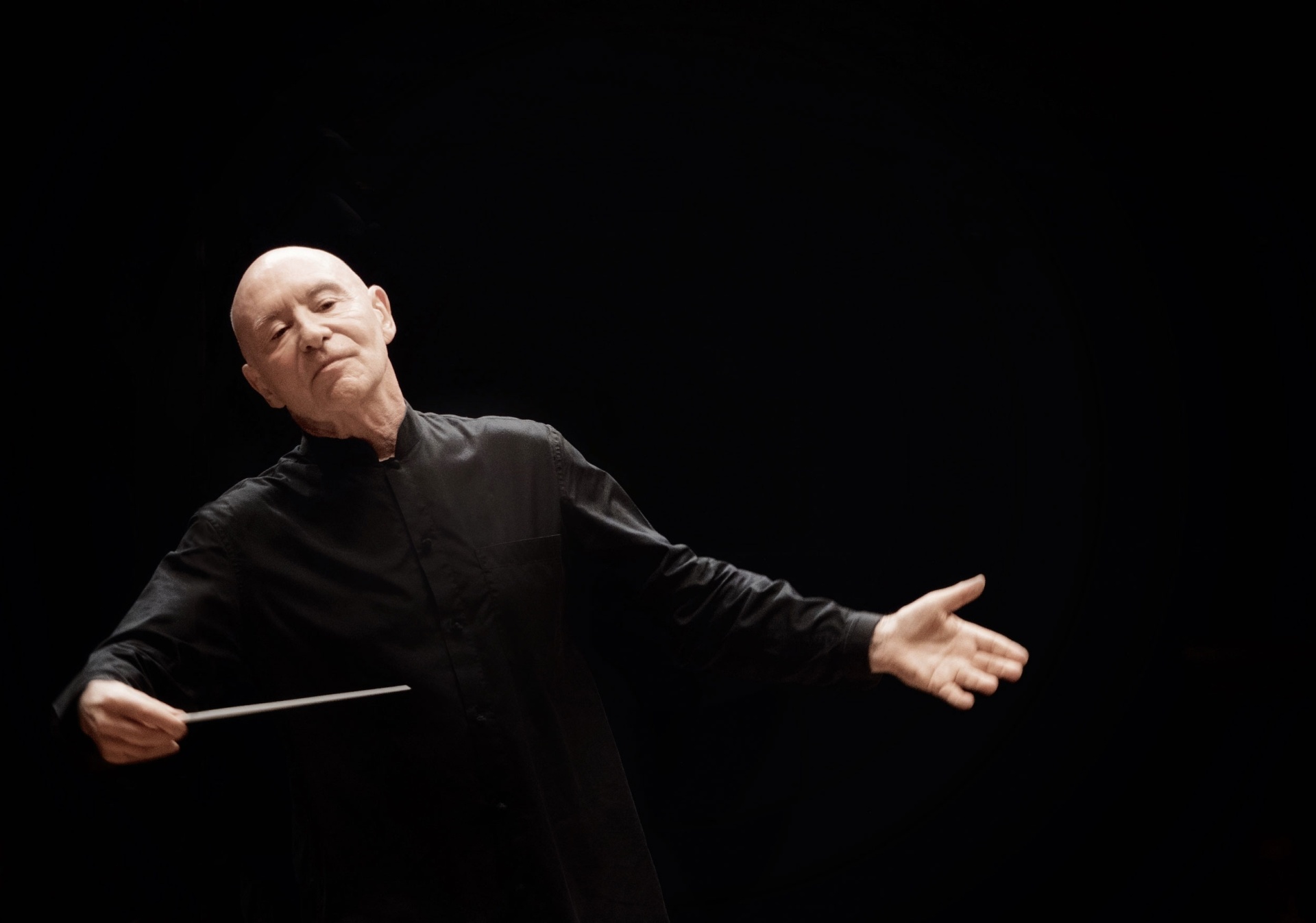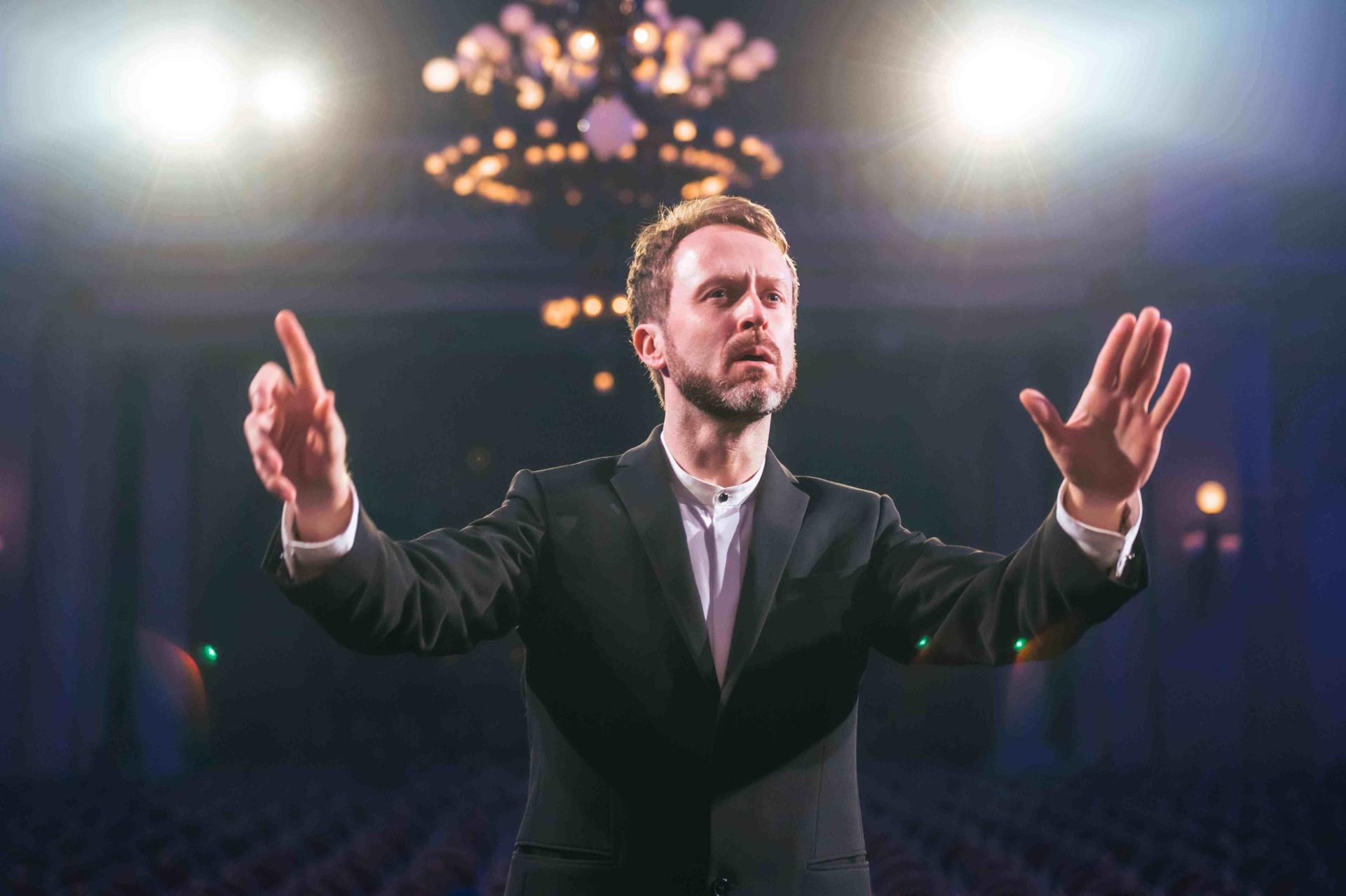CLOSING CONCERT
Programme
- György Ligeti: Atmosphères
- Johannes Brahms: Schicksalslied op. 54
- Ludwig van Beethoven: Symphony No. 9 in D minor Op. 125
Performers
- Czech Philharmonic
- Christoph Eschenbach – conductor
- Prague Philharmonic Choir
- Lukáš Vasilek – chorusmaster
- Simona Šaturová – soprano
- Lucie Hilscherová – Mère Jeanne de l’Enfant Jésus
- Steve Davislim – tenor
- Jan Martiník – bass
Conductor Christoph Eschenbach
The 78th Prague Spring will be crowned by a performance of Ludwig van Beethoven’s Symphony No. 9 and its “Ode to Joy”, which form a traditional conclusion to the festival. The grand event will see the Czech Philharmonic and the Prague Philharmonic Choir joined by four eminent soloists under the baton of the German conductor Christoph Eschenbach. The programme will complement Beethoven’s music with Johannes Brahms’s Song of Destiny and Gÿorgy Ligeti’s masterful Atmosphères. This spring will mark 100 years since the birth of the great 20th-century Hungarian composer. “The human spirit and its urge to explore, to search for light and joy – that is one possible characterisation of the closing concert, in which Christoph Eschenbach will interweave three seemingly incongruent works,” notes Josef Třestík, Programme Director of the Prague Spring.

Christoph Eschenbach is a living legend of the conductor’s podium. Born in Wrocław, he was orphaned during the war and grew up with relatives in Aachen. He launched his artistic career as a successful pianist, but with the support of figures the likes of George Szell or Herbert von Karajan he gradually re-oriented his focus to become one of the most eminent conductors of his generation. In a career spanning half a century, he has served as chief conductor of orchestras such as Tonhalle Zurich, Orchestre de Paris, or the Philadelphia Orchestra, and he has conducted all the major orchestras of the world, including the Berliner and Wiener Philharmoniker. Since 2019 he has held the post of Music Director at the Konzerthaus in Berlin. Eschenbach’s artistic profile is characterised by a persistent artistic search, by collaboration with world-class musicians, and by support for young talents. He is credited with “discovering” such figures as the pianist Lang Lang, the violinist Julia Fischer, or the cellist Daniel Müller-Schott. Eschenbach’s desire to perform music at the highest possible level and to explore new artistic horizons remains unabated even in the conductor’s eighties. The Prague Spring concert will begin with Ligeti’s innovative Atmosphères, which might be glossed as a composition heard by everyone but known by few. This seminal work of timbre music, in which tone colour is the principal element, was used by the film director Stanley Kubrick in his famous 2001: A Space Odyssey. The programme will continue with Song of Destiny for chorus with orchestra, Johannes Brahms’s musical setting of the poetry of Friedrich Hölderlin, oscillating between heavenly heights and human suffering, to conclude with Beethoven’s monumental symphony with Friedrich Schiller’s “Ode to Joy” in the final movement.









